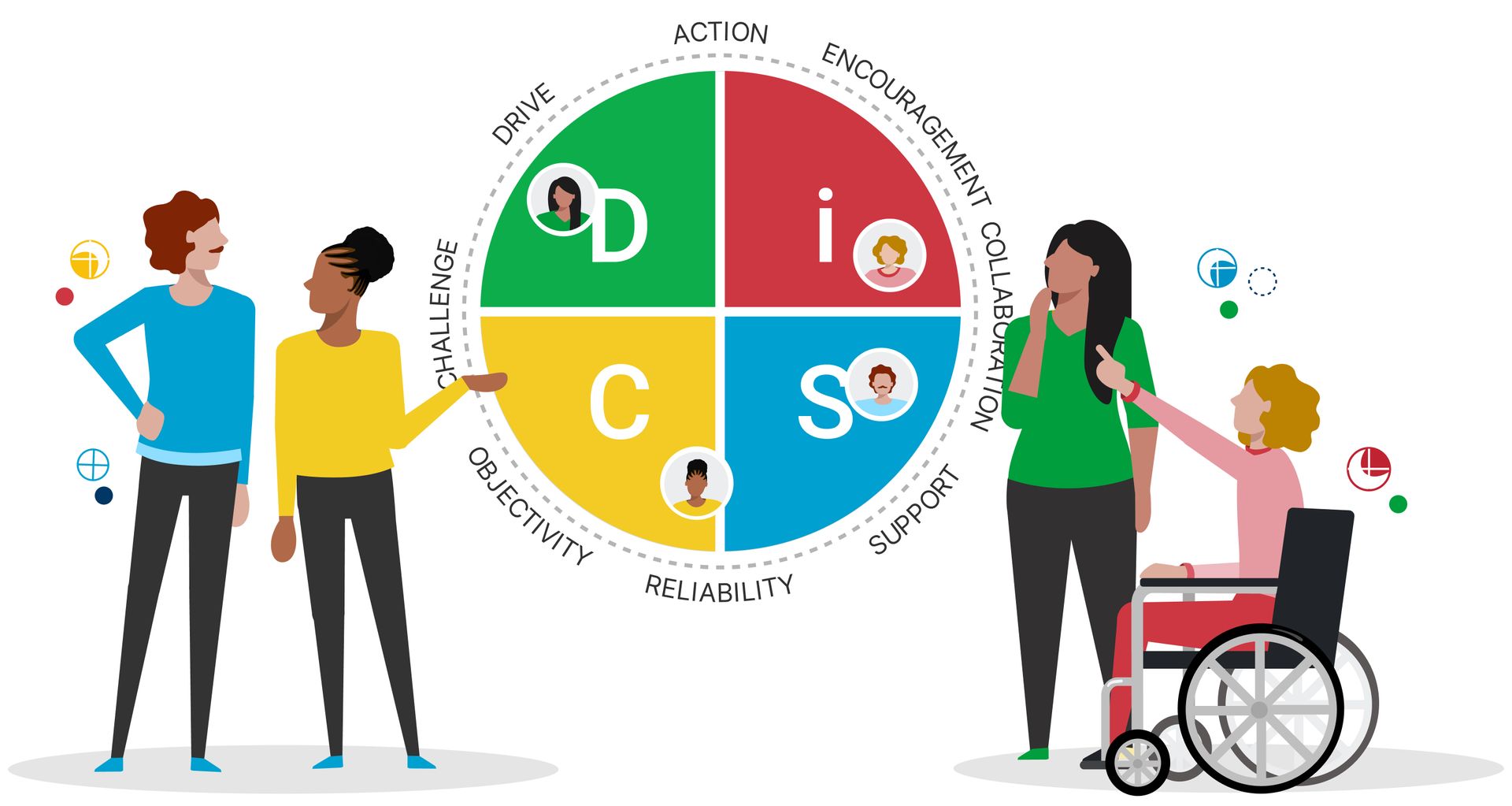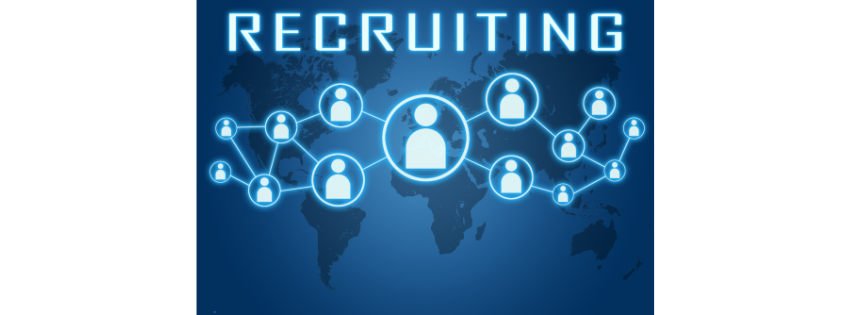Enspire Opportunities Blog

Every thriving dental practice starts with one thing, people. The right team doesn’t just deliver great dentistry; they define your culture, elevate your patient experience, and determine your long-term success. Yet one of the biggest challenges many dental leaders face is finding individuals who don’t just fit the role, but grow within it. That’s where the connection between hiring and education becomes so powerful. Hire for Potential, Not Perfection A great hire isn’t always the person with the most years of experience — it’s the person with curiosity, adaptability, and a growth mindset. Skills can be trained. Character can’t. When you hire for attitude and align values, you create a team that can evolve with your practice and the ever-changing demands of dentistry. Education Builds Excellence Education is the foundation of team development. Ongoing learning — from communication workshops to leadership coaching — turns a group of individuals into a unified, high-performing team. The best offices don’t wait for problems to arise; they invest early and consistently in professional growth. The Ripple Effect When your team feels supported, capable, and confident, that energy radiates outward to patients, colleagues, and the entire community. A well-trained, motivated team doesn’t just improve performance; they transform your practice culture. Ready to Strengthen Your Team? At Enspire Dental Opportunities , we help dental leaders attract exceptional professionals and develop high-performing teams through customized recruitment, coaching, and training programs. Whether you’re hiring your next star team member or investing in your existing one, we’ll help you build a team that grows together. Visit www.enspireopportunities.com to learn more about our recruitment solutions and team development programs.

Running a dental practice today is about far more than exceptional clinical care. The most successful offices know that the secret ingredient isn’t just technology or marketing, it’s the people. Your team is the heartbeat of your practice. When they’re motivated, engaged, and aligned with your vision, everything flows: patients feel cared for, systems run smoothly, and growth happens naturally. But when morale dips or turnover spikes, even the strongest practices feel the impact. The Hidden Cost of Turnover Replacing a single hygienist or dental assistant costs much more than posting a job ad. Beyond recruitment fees, practices face lost productivity, patient dissatisfaction, and the stress of reshuffling schedules. Studies show it can take six months or more for a new hire to fully integrate into a practice culture. That’s a lot of lost time and revenue. Building a Culture People Don’t Want to Leave The good news? Dental professionals aren’t just looking for a paycheck—they want a workplace where they feel valued, supported, and able to grow. Offices that invest in leadership development, soft-skill training, and team communication consistently report higher retention and better patient experiences. Simple strategies like: Clear onboarding and mentorship for new hires Leadership training for office managers and senior staff Tools like DiSC® to improve communication and teamwork Regular check-ins to align values and goals …all go a long way in creating a thriving, loyal team. Where to Start If you’re feeling the pain of turnover, or just want to strengthen your culture before it becomes a problemnow is the time to act. The practices that thrive are the ones that put people first. At Enspire Dental Opportunities, we specialize in helping practices attract, engage, and retain top talent. From recruitment to leadership workshops and DiSC training, we provide the tools and strategies to ensure your team and your practice succeed together. Ready to build a stronger team and reduce turnover? Let’s talk about how we can help . Book a consultation with us today and start creating a workplace where your team loves to work, and your patients love to stay!

Finding the Right Fit: How Dentists Can Attract and Keep Great Team Members Running a dental practice isn’t just about providing exceptional patient care — it’s about building a team that works seamlessly together, supports your vision, and stays with you for the long term. In today’s market, dentists across Canada are feeling the squeeze when it comes to recruitment. Hygienists, assistants, receptionists, and associates are in demand, and finding the right fit can feel overwhelming. So, how do you stand out as an employer of choice and build a team that thrives? Here are a few strategies that can help. 1. Hire for Character, Train for Skill Clinical skills can be taught — but attitude, work ethic, and emotional intelligence are harder to instill. When reviewing candidates, focus on personality traits and values that align with your practice culture. A team member who brings positivity, flexibility, and a patient-first mindset is often worth far more in the long run than someone with years of technical experience but the wrong attitude. 2. Be Transparent in Job Ads Generic job ads don’t cut it anymore. Candidates want to know: What makes your office unique What their day-to-day role will look like What growth opportunities exist Highlight the aspects of your practice that matter most to today’s dental professionals — things like work-life balance, mentorship, CE support, or a friendly, team-oriented environment. 3. Understand What Today’s Candidates Value Compensation is important, but it’s not the only factor. Many dental professionals are looking for: Flexibility in scheduling A supportive team where they feel respected Opportunities for growth and learning A positive culture with strong communication If you can offer these — and communicate them clearly in your ads and interviews — you’ll attract candidates who care about more than just the paycheck. 4. Move Quickly — The Market is Competitive When a strong candidate applies, act fast. Waiting weeks to schedule interviews or make offers can result in losing them to another office. Having a streamlined recruitment process shows professionalism and keeps top candidates engaged. 5. Retain Through Engagement Recruiting is just the first step. Retention is where the real work begins. Keep your team engaged by: Offering regular check-ins and feedback Celebrating milestones and achievements Encouraging input and collaboration on office improvements Supporting ongoing education A team that feels valued and heard will stay longer, reducing turnover and saving you the stress of constant rehiring. Partnering for Success Finding the right people takes time and strategy — and that’s where a recruitment partner can help. At Enspire Dental Opportunities , we specialize in connecting dental practices with qualified candidates who are not only skilled but also aligned with your values and culture. But our support doesn’t stop once a candidate is hired. We also provide onboarding coaching and training to ensure your new team member integrates smoothly, builds confidence quickly, and contributes to a positive, productive environment. This combination of recruitment and post-hire support helps you reduce turnover, strengthen your team culture, and create lasting success. If you’re ready to build and retain a thriving dental team, let’s connect: www.enspireopportunities.com

The Cost of a Quick Hire When a team member leaves, the pressure to fill the role quickly can be intense. Patients are booked, schedules are tight, and the team is stretched thin. It’s tempting to hire the first qualified candidate who walks through the door, but rushing this step often comes with hidden costs. The Hidden Costs of Rushing a Hire Turnover: A poor fit usually means you’ll be back to recruiting again within months. Lost Productivity: Training someone who leaves soon after wastes valuable time and energy. Team Disruption: A mismatch can create friction, stress, and lowered morale for everyone. Patient Experience: Patients notice when the energy in the office isn’t cohesive. Why Fit Matters More Than Speed The best teams aren’t just skilled—they share values, communicate effectively, and trust one another. A thoughtful hiring process ensures that a new team member strengthens the culture you’ve worked hard to build. Taking the time to evaluate both competence and compatibility pays off in the long run. How to Avoid the “Quick Hire Trap” Clarify your values first. Know what qualities make someone successful in your office. Use structured interviews. Ask behaviour-based questions that reveal work style and problem-solving. Get team input. A candidate who connects well with your team is more likely to stay long term. Prioritize soft skills. Technical skills can be trained—character and communication are harder to teach. An empty chair may be stressful, but the wrong hire is even costlier. By slowing down and focusing on alignment, you’ll build a team that lasts—and one that patients love returning to. 👉 At Enspire Dental Opportunities, we specialize in helping offices hire smarter and support long-term success through coaching, team training, and DiSC assessments. If you’d like to strengthen your hiring process, let’s connect.

In the dental chair, trust isn’t just nice to have—it’s everything. A patient’s willingness to follow through with treatment, share concerns, or even show up consistently often hinges on their level of trust with the provider. While clinical skills are critical, what often makes or breaks the patient experience is how well we communicate and connect. That’s where DiSC comes in. What is DiSC? The DiSC model is a simple yet powerful tool that helps us understand behavior and communication styles. It breaks down into four primary types: D – Dominance : Direct, decisive, results-oriented i – Influence : Social, enthusiastic, people-oriented S – Steadiness : Calm, dependable, relationship-focused C – Conscientiousness : Analytical, precise, quality-driven By learning to spot these styles in our patients, we can adapt how we interact—making them feel more understood, respected, and at ease. Why DiSC Matters in Clinical Settings Your patients don’t just come in with dental needs—they come with personalities , fears , and communication preferences . When you recognize and respond to those behavioural cues, you create a foundation of trust. Here’s how it works in practice: 🟥 D-Style Patients: “Let’s get to the point.” These patients are driven, assertive, and want efficiency. What builds trust: Be direct and confident Stick to outcomes and benefits Offer options, but don’t overwhelm them with details Example: “Here’s the best treatment to get you back to 100% quickly. It’s the most efficient approach based on your case.” 🟨 i-Style Patients: “Make it friendly and upbeat.” i-types are social and people-oriented. They value connection and a positive vibe. What builds trust: Smile and use open body language Personalize the conversation (mention hobbies or last visit) Explain treatment in an enthusiastic, simplified way Example: “I’m excited about the progress we’re making! This next step will have you smiling even more.” 🟩 S-Style Patients: “Go slow and show you care.” S-styles are steady, loyal, and resistant to change. What builds trust: Use a calm, reassuring tone Take your time and explain changes clearly Emphasize stability, consistency, and long-term care Example: “I know change can feel a bit unsettling, but I’ll walk you through every step so you feel comfortable.” 🟦 C-Style Patients: “Give me the details.” These patients are logical, detail-focused, and cautious. What builds trust: Be prepared with data or visuals (like x-rays or diagrams) Answer questions with precision Avoid pushing decisions—give them time to think Example: “This chart shows why we recommend this approach. I’ll leave it with you to review, and we can revisit any questions you have.” The DiSC Advantage: Better Communication = Better Outcomes When patients feel heard and understood, they’re more likely to: Follow treatment recommendations Show up consistently Refer others Leave positive reviews DiSC doesn’t require you to be someone you’re not—it simply helps you adapt how you present information to match your patient’s comfort zone. Trust Is Built in the Small Moments Whether you’re a dentist, hygienist, assistant, or front desk team member, every interaction is a chance to build—or erode—trust. When you understand the DiSC styles, you gain a secret advantage: the ability to meet people where they are. Because in the end, it’s not just about teeth. It’s about people. And when people trust you, everything gets easier—for them and for you. Would you like to bring DiSC training to your practice? Let’s connect—I offer customized workshops for dental teams ready to elevate communication and patient care.

Is there someone in your circle who asks a lot of questions, needs all the facts, and holds themselves to high standards? That’s likely someone with a C (Conscientiousness) DiSC style. What is Everything DiSC? Everything DiSC is a personal development tool backed by decades of research. It provides individuals with a simple yet powerful framework to understand themselves and others better through four primary behavioral styles: Dominance (D), Influence (I), Steadiness (S), and Conscientiousness (C). By learning your DiSC style, you can improve communication, strengthen relationships, and enhance team performance. In the workplace, it helps create a more adaptive, respectful, and collaborative culture. Trusted by leading organizations. Major corporations like Google, Amazon, AT&T, American Express, and 3M use DiSC to build stronger teams, enhance leadership effectiveness, and cultivate more positive organizational cultures. What is the C Style? C styles value accuracy, logic, and quality. They are analytical, private, and prefer to work independently. They communicate carefully, with a focus on precision and correctness. The C Style at Work In the workplace, C styles are your researchers, analysts, and quality controllers. They’re thorough, detail-oriented, and methodical. A C-style team member may double-check data, spot errors before anyone else, and prefer email over impromptu meetings. The C Style at Home At home, C styles are thoughtful, structured, and may prefer quiet over chaos. They may enjoy hobbies that involve systems or detailed tasks. A C-style partner might be the one organizing the finances or creating vacation spreadsheets. The C Style in Conflict In conflict, C styles can become overly critical or withdraw into analysis. They may avoid emotional expression and focus on logic. Helping C styles feel safe expressing emotion—and not just facts—is key to resolution. Do you recognize yourself or someone else in the C style? Join our Free DiSC Showcase Webinar on Wednesday, July 9th at 7:00 PM EST to explore the Everything DiSC on Catalyst experience and unlock insights into how you (and your team) operate best. 👉 Click here to register Thanks for reading our DiSC style series! Stay connected for more insights and tools to support your growth and communication.

Do you know someone who is steady, supportive, and always willing to lend a hand? You’re likely connected with someone who has the S (Steadiness) DiSC style. What is Everything DiSC? Everything DiSC is a personal development tool backed by decades of research. It provides individuals with a simple yet powerful framework to understand themselves and others better through four primary behavioral styles: Dominance (D), Influence (I), Steadiness (S), and Conscientiousness (C). By learning your DiSC style, you can improve communication, strengthen relationships, and enhance team performance. In the workplace, it helps create a more adaptive, respectful, and collaborative culture. Trusted by leading organizations. Major corporations like Google, Amazon, AT&T, American Express, and 3M use DiSC to build stronger teams, enhance leadership effectiveness, and cultivate more positive organizational cultures. What is the S Style? S styles value stability, harmony, and cooperation. They are dependable, patient, and prefer a calm, consistent environment. They communicate with kindness, empathy, and a desire to keep things peaceful. The S Style at Work At work, S styles are the glue that holds teams together. They’re dependable, loyal, and excellent listeners. They may avoid conflict, but they’re trusted team players. An S-style project coordinator might ensure everyone has what they need and follow up without pressure. The S Style at Home At home, S styles are nurturing, thoughtful, and attentive. They create a warm and welcoming space for family and friends. They may put others’ needs before their own and find comfort in routines. An S-style family member might be the peacemaker in a household. The S Style in Conflict In conflict, S styles tend to withdraw or accommodate to avoid tension. They may not speak up even when something bothers them. Encouraging S styles to express themselves and assuring them that it’s safe to disagree is key to healthy relationships. Are you a calm stabilizer in your workplace or home? Discover your DiSC style and learn how to leverage your strengths. Join our Free DiSC Showcase Webinar on Wednesday, July 9th at 7:00 PM EST to explore Everything DiSC on Catalyst and your personal style. 👉 Click here to register Stay tuned for our next blog: Understanding the C Style.

Is there someone in your life who brings the energy to every room, thrives on connection, and always seems to have a story to share? That’s the signature of someone with the I (Influence) DiSC style. What is Everything DiSC? Everything DiSC is a personal development tool backed by decades of research. It provides individuals with a simple yet powerful framework to understand themselves and others better through four primary behavioral styles: Dominance (D), Influence (I), Steadiness (S), and Conscientiousness (C). By learning your DiSC style, you can improve communication, strengthen relationships, and enhance team performance. In the workplace, it helps create a more adaptive, respectful, and collaborative culture. Trusted by leading organizations. Major corporations like Google, Amazon, AT&T, American Express, and 3M use DiSC to build stronger teams, enhance leadership effectiveness, and cultivate more positive organizational cultures. What is the I Style? I styles are enthusiastic, social, and people-oriented. They value relationships, collaboration, and recognition. They communicate in a warm, expressive, and sometimes spontaneous way. The I Style at Work At work, I styles are team builders and motivators. They bring energy to meetings, love brainstorming, and are excellent at rallying others behind a cause or idea. An I-style marketing coordinator, for instance, may thrive in client presentations and be the go-to for office celebrations. The I Style at Home At home, I styles are affectionate, playful, and fun-loving. They may struggle with routine but bring joy and spontaneity to family life. An I-style spouse or roommate might be the one organizing social events or encouraging last-minute road trips. The I Style in Conflict In conflict, I styles may avoid confrontation and prioritize harmony. They might minimize issues or shift the focus to avoid negativity. While this helps maintain peace, they may need to work on addressing issues directly and listening without deflection. Want to explore whether you’re an I style—or how to better connect with one? Don’t miss our Free DiSC Showcase Webinar on Wednesday, July 9th at 7:00 PM EST. Learn how Everything DiSC on Catalyst reveals your style and transforms team dynamics. Reserve your spot today! 👉 Click here to register Stay tuned for our next blog: Understanding the S Style.

Do you know someone who is bold, direct, and always chasing results? You might be working—or living—with someone who has a high D (Dominance) DiSC style. What is Everything DiSC? Everything DiSC is a personal development tool backed by decades of research. It provides individuals with a simple yet powerful framework to understand themselves and others better through four primary behavioural styles: Dominance (D), Influence (I), Steadiness (S), and Conscientiousness (C). By learning your DiSC style, you can improve communication, strengthen relationships, and enhance team performance. In the workplace, it helps create a more adaptive, respectful, and collaborative culture. Trusted by leading organizations. Major corporations like Google, Amazon, AT&T, American Express, and 3M use DiSC to build stronger teams, enhance leadership effectiveness, and cultivate more positive organizational cultures. What is the D Style? People with the D style are driven by results, challenge, and action. They prefer to move quickly, take control, and make decisions. Their communication tends to be brief, assertive, and to the point. The D Style at Work At work, D styles are natural leaders and decision-makers. They thrive in fast-paced environments and are motivated by achieving goals. They value efficiency and are often seen as competitive and determined. For example, a D-style team leader might set ambitious KPIs and push their team hard to meet them, expecting performance and direct communication in return. The D Style at Home At home, D styles can take charge of schedules, planning, and problem-solving. They may struggle with patience or overly emotional conversations but will step up when decisions need to be made. A D-style parent, for example, may be goal-oriented with their children, setting high expectations and encouraging independence. The D Style in Conflict In conflict, D styles are assertive and prefer to address issues head-on. They may come across as aggressive if they’re not careful, but their goal is to resolve the issue and move forward quickly. They may need to be reminded to slow down and listen to other perspectives. Curious if you—or someone you know—is a D style? Join our Free DiSC Showcase Webinar on Wednesday, July 9th at 7:00 PM EST to explore the Everything DiSC on Catalyst platform, discover your own DiSC style, and learn how DiSC can elevate communication and performance at work and at home. 👉 Click here to register Stay tuned for our next blog: Understanding the I Style.



